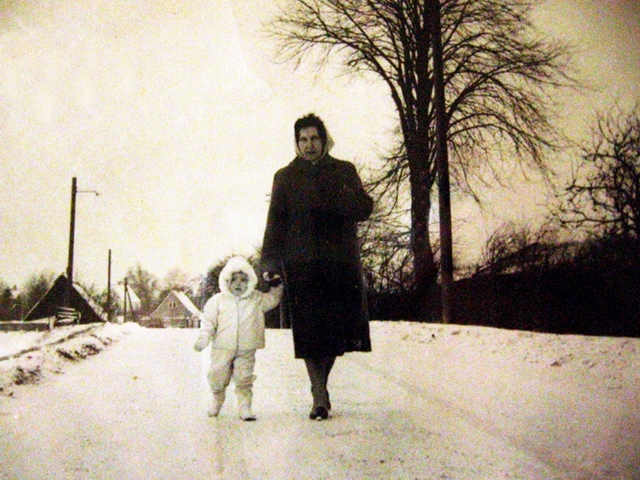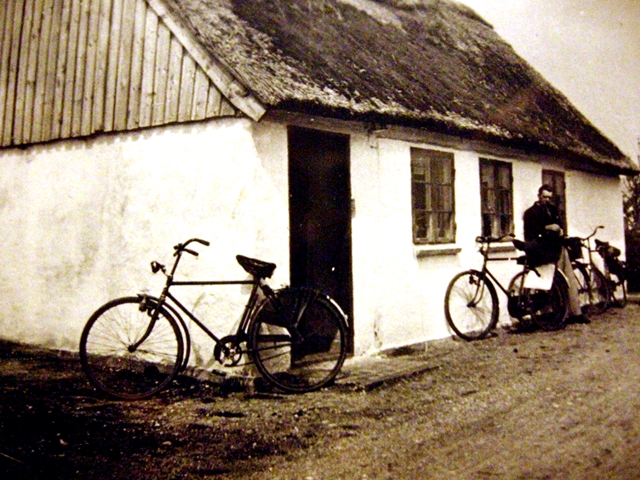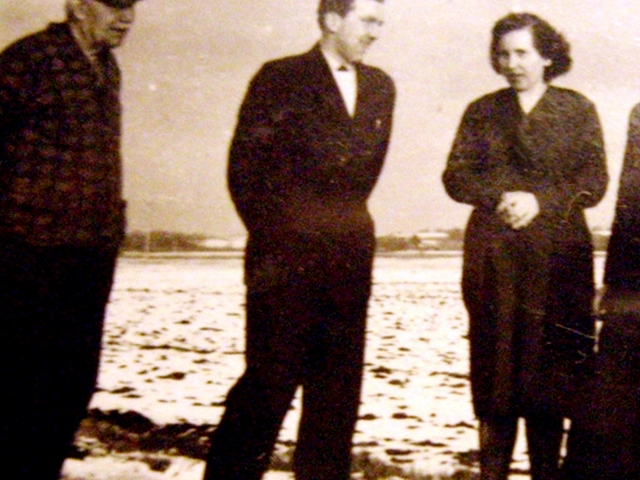This Is About Lilly

(my great-grandmother with my mother)
These days I find myself thinking a lot about my great-grandmother, Lilly.
Lilly was born whilst the First World War was raging outside Danish borders. Born into a poor family, she would pick grains from fields at dusk hoping to get enough for her mother to bake bread. At fourteen she was already working as a servant girl. At twenty (or twenty-one) she married her employer - a man nearly thirty years her senior. By this time she had already acted as a mother figure to her soon-to-be husband's seven motherless children. She would end up having eleven children of her own. Relying solely on her oldest children to help her, Lilly brought up eighteen (18) children in the 1930s and 1940s during the Great Depression and World War Two. The house had no running water and no central heating. The family lived off the land and whatever petty jobs could be had.

Lilly was in her sixties when I was born and she looked after me until I was old enough to start school. She brought me old dish rags on which I could embroider my name and I made dolls' clothes using her hand-crank Singer sewing machine. Her button box gave me endless hours of pleasure and it was passed down to me.
And she taught me to knit next to the kerosene stove in her living room.
Family lore has it that she fell out with her mother in the early 1930s and, as revenge, Lilly changed from knitting throwing-style to knitting Continental-style. They made up, but every subsequent generation of women was taught to knit Continental-style by Lilly. She was a formidable, smart woman who played the long game. Lilly would have made an excellent army general.

These days I think a lot about Lilly and her generation. I heard her stories about World War Two (during which Denmark was occupied) and these stories run through my head when I see people talking about inspiring WW2 heroes and kicking Nazi butt.
I was brought up in a family very much altered by World War Two. Someone came home to dinner one night wearing a uniform as he had signed up to guard Allied prisoners. I never knew that family branch existed until Lilly's funeral and his son showed up. Lilly's oldest brother went into the Resistance and when he passed away (at age 100!), we found a medal. The files are still sealed by the government and my great-granduncle refused to utter as much as a word about the War. We have no idea what he did but his eyes spoke volumes. My grandmother recalls seeing planes flying over the fields, columns of emaciated German soldiers marching through the village and Lilly ushering everybody into the threshing barn.
My great-grandmother taught me World War Two was a time of hardship, strife, loss, bitterness, and heartbreaking despair. Resistance heroes were ordinary men and women. They weren't "absolute legends", nor clickbait, nor Brad Pitt with a comedic accent, nor a jingoistic poster. Their actions ranged from whatever my great-granduncle did (but which affected him for the rest of his very long life) to Lilly's refusal to break bread with a family member. War is dirty and terrible - and I really dislike seeing people almost fetishising the idea of reliving World War Two in 2017. This is not a chance to live out your favourite films nor indulge in cosplay (link from 2010 but it still strikes me as tone-deaf). I genuinely wonder what part our collective sense of nostalgia has played in Recent Events - a sense of nostalgia that has been fed by the media we consume. How is it we react to things?
I don't honestly know where I am going with this. I really, really do not know. These days I just find myself thinking of Lilly a lot. I think of what she taught her daughter, her grand-daughter and what she taught me. Lessons of resilience and the many complexities of life. She would have turned 101 years this year and I honestly don't know what she would have made of this mess.

(Lilly with her parents, my great-great-grandparents)